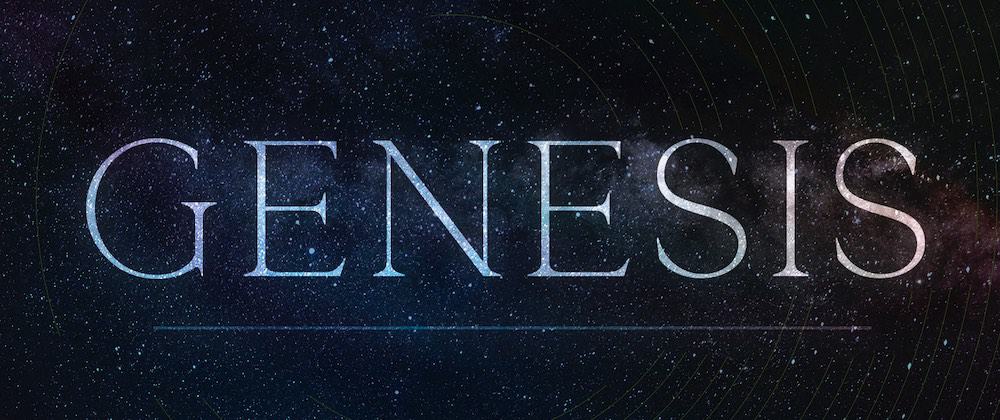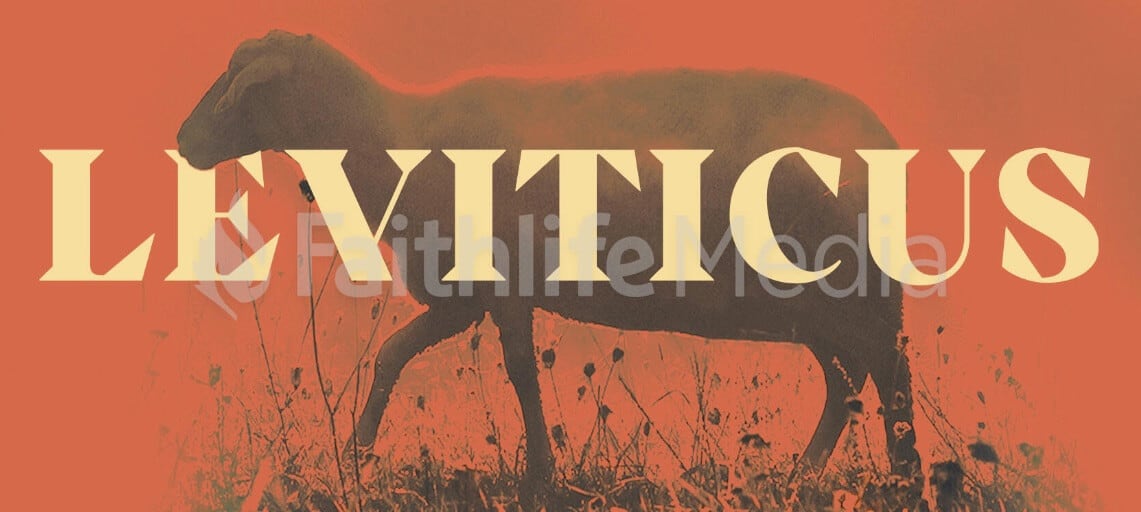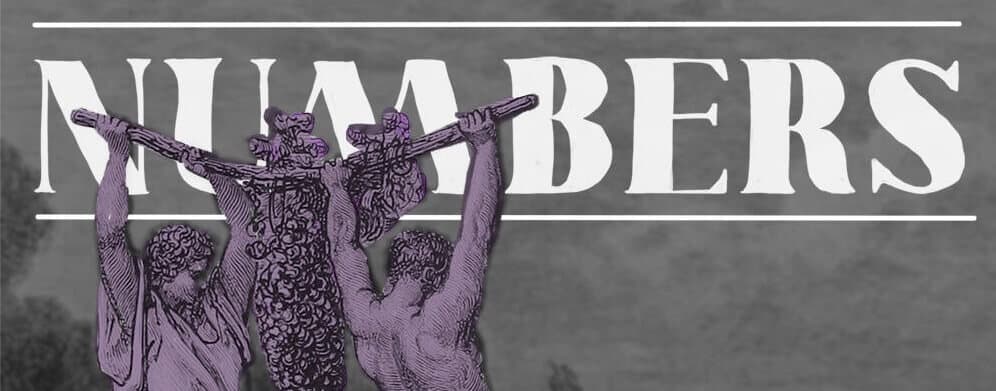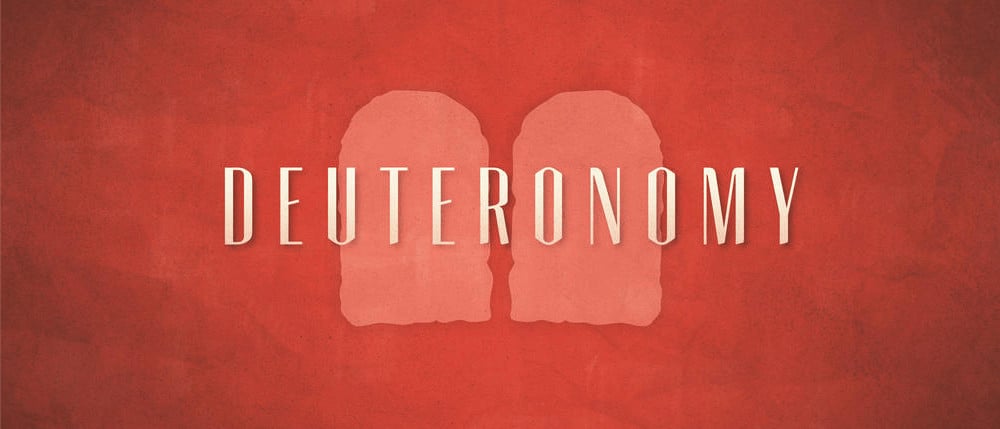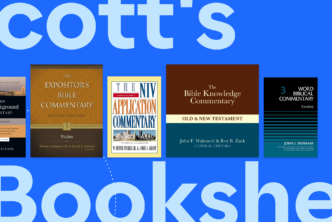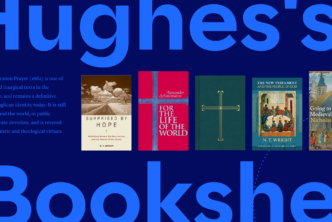What is the Pentateuch? Though the name sounds theological, it’s really not. The Pentateuch is just the first five books of the Old Testament: Genesis, Exodus, Leviticus, Numbers, and Deuteronomy. In the Hebrew Bible it’s known as the Torah1 and is sometimes called in the New Testament the “writings of Moses” (John 5:46–47), “the law of Moses” (Luke 24:27)—or just “Moses” (Mark 7:10)2 or “the Law.” Because (as Lexham Bible Dictionary says) the phrase “the Law” has additional connotations (e.g., Moses’ teachings or just Deuteronomy), and so “the Law” is not always synonymous with the Pentateuch or Torah.3
The word “Pentateuch” comes from two Greek words, pente (“five”) and teuchos (“case,” “scroll,” or “volume”), and according to Tyndale Bible Dictionary, was thus named because the first five books of the Bible were “encased” together as one book.
What is the Pentateuch about—and why does it matter?
Much of the Pentateuch relays God’s laws, which were to govern Israel’s religious and civil life. Tyndale Bible Dictionary says it “begins with the creation of the universe and records God’s dealings with mankind in the garden of Eden, his preparation of a seed-bearing line (the patriarchal stories), and the formation of the nation Israel”4—and is thus paramount for understanding the whole Bible.
Together these five books hold the “foundational revelation of the Bible,” as James E. Smith says in his book aptly titled Pentateuch, and establishes God’s plan to restore humanity to a right relationship with him. The conditional Mosaic (or “Sinaitic”) covenant (more on this below) in which God gave Israel his divine Law through Moses (described in Exodus, Leviticus, Numbers, and Deuteronomy),5 would set Israel apart as the nation he would use as the vehicle for world redemption. Israel’s history, the prophets’ preaching, and poetic literature are all based on this covenant.
Undergirding all five books is God’s plan to reconcile the people he made in his image to himself by rectifying the issue of sin. This theme or “thread” of redemption continues throughout the rest of the Old Testament and into the New with the revelation of how God will accomplish it: through his “Anointed One” (in Greek, “Christ”)—the offspring he promised in Genesis 3:15 that would come from Abraham’s line (Gen 12:1–3; 18:17–18) to “crush” Satan’s head (Gen 3:15 NIV).
Interspersed between the story of creation, the establishment of the sacrificial system, and stories of obedience, idolatry, love, and war is the beautiful origin story of God’s people. Just as we look back on our family history to determine who we are, Christians look back at the Pentateuch to answer the questions of who we are, why we exist, how we came to exist, and what we’re supposed to do with our lives.
What is the difference between the Torah and the Pentateuch?
Nothing, really. The Torah* and the Pentateuch are the same—both are the first five books of the Bible, but Jews refer to it as the Torah.
Lexham Bible Dictionary defines “torah” as “instruction” or “direction,” but as the concept developed, the word took on the meaning of “law.”
In the mid-third century BC, Alexandrian Jews translated the Hebrew Scriptures (the Torah) into Greek (known as the Septuagint), they used the Greek word nomos (νόμος)—which means “norm, standard, or doctrine”—for the word “torah.” Eventually, scholars began translating “torah” as “law,” and soon “torah” was being referred to as “the Law” in Greek and Latin Bibles.
But in truth, the Torah, the first five books of Moses that form the basis for Jewish law and practice today, is the same as the Pentateuch.
Who wrote the Pentateuch?
Though authorship has long been debated, the Bible itself tells us Moses authored all five books—likely between 1440 and 1400 BC.
One of many verses that affirms this is Exodus 17:14, which says:
Then the Lord said to Moses, “Write this as a memorial in a book and recite it in the ears of Joshua . . .”
Other passages use similar wording, like Exodus 24:4, which says Moses “wrote down all the words of the LORD,” Numbers 33:1–2, which says when Israel left Egypt Moses “wrote down their starting places, stage by stage, by command of the LORD,” and Deuteronomy 31:9 that tells us Moses “wrote this law and gave it to the priests, the sons of Levi.”6
Smith writes:
About 35 times in Leviticus, Moses is said to have received directives from the Lord. In Numbers about half the chapters begin with the claim that God communicated with Moses. Deuteronomy claims to contain the last words of Moses spoken just before his death. Without question, then, the Pentateuch makes repeated claims that its content originally was communicated to and through Moses.7
But one chapter, Deuteronomy 34, is debatable. That chapter is about Moses’ death, burial, and the handing over of Jewish leadership to Joshua. Naturally, it would seem like someone else documented his death. Jewish tradition cites Joshua as the author of Moses’ obituary while other biblical scholars attribute its authorship to Eleazar the priest. Even Ezra and Samuel are candidates.
Some who have suggested authors other than Moses8 for the Pentateuch include Israel Finkelstein, Norman Gottwald, and Rolf Rendtorff. They argue among other things that (1) writing had not been invented at that time; (2) the Pentateuch is written in the third person (“Now the man Moses was very humble . . .” [Num 12:3]); (3) the ideology varies throughout the five books; (4) the text repeats; and therefore (5) it was obviously written by multiple authors.
A glimpse of the pentateuchal books
Genesis sets the stage for the Bible and includes two major sections. The first is primeval history—Genesis 1–11 (the creation account, the fall, the flood, the tower of Babel—and lots of genealogies). The second section includes patriarchal history, including Abraham, Issac, Jacob, and their descendants, as well as Joseph and his brothers. But underpinning all of this is God’s establishment of his covenant with Abraham to bless all nations through this one family.
Key passage: Genesis 12:3
I will bless those who bless you, and him who dishonors you I will curse, and in you all the families of the earth shall be blessed.
The book of Exodus also contains two sections. Chapters 1–19 tell the story of Israel’s exodus out of Egypt (the “hinge” story of Passover that Jews orient their lives around), and the second section, chapters 20–40, relays God’s establishment of his covenant with them at Sinai. Here he calls the nation to obedience so that they might reflect his character to a watching world. The book ends with God’s glory descending upon the tabernacle in the form of a cloud by day and a pillar of fire by night that would guide the Israelites whenever they set out.
Key passage: Exodus 19:5–6:
If you will obey my voice and keep my covenant, you shall be my own possession among all peoples; for all the earth is mine and you shall be a kingdom of priests and a holy nation.
The book of Leviticus presents a series of instructions from God to Moses to pass on to Israel, including instructions about how to draw near to him through sacrifices and offerings. We learn of Aaron’s ordination, ritual purity and impurity laws, and various behavioral laws. Leviticus 23 establishes the Feasts of the Lord—like the Day of Atonement and the Feast of Tabernacles—with detailed instructions for how they should be celebrated. According to Colossians 3:16–17, these feasts are merely a shadow of the reality found in Christ.
Key verse: Leviticus 26:46
These are the decrees, the laws and the regulations that the Lord established at Mount Sinai between himself and the Israelites through Moses.
Numbers is all about the Israelites’ time in the wilderness, wandering the Sinai desert. Israel departs for the promised land but soon rebels against God by refusing to enter it. The consequence? Because of unbelief, God declared that “Not one of you will enter the land I swore with uplifted hand to make your home, except Caleb son of Jephunneh and Joshua son of Nun” (Num 14:30; see also 31–34).
The last chapters include instructions and preparation for finally crossing the Jordan and settling the promised land. The book of Numbers offers a picture of the life of a believer and the spiritual battle we are continually fighting—and God’s constant and guiding presence in it.
Key verse: Numbers 14:14
Your cloud stands over them and you go before them, in a pillar of cloud by day and in a pillar of fire by night.
Moses gives three speeches that make up the bulk of Deuteronomy, all given in the 40 days before the nation entered Canaan. He first recounts the Israelite’s wilderness wanderings and exhorts them to obey God, then repeats and elaborates on the Ten Commandments, and ultimately sets out a renewed covenant with God and exhorts Israel to keep it and obey.
Key verse: Deuteronomy 10:12
What does the Lord your God require of you, but to fear the Lord your God, to walk in all his ways, to love him, to serve the Lord your God with all your heart and with all your soul.
15 best commentaries for studying the Pentateuch
Studying the Pentateuch is one of the best things you can do to grasp a more full understanding of God’s redemptive work throughout the whole of Scripture. Does the book of Hebrews seem confusing? A better understanding of the Feasts and the sacrificial system in Leviticus will make the significance of Christ’s once-for-all sacrifice in Hebrews 10 so much more clear.
Whether you’re new to using commentaries or you have a full shelf to choose from, they are a great aid to your study of these books. Here are 15 of the best commentaries on the Pentateuch. See all 15 commentaries at once—with prices—at the bottom of this post.
Genesis
- Word Biblical Commentary (WBC)
-
- Genesis 1–15 (Vol. 1) by Gordon J. Wenham
- Genesis 16–50 (Vol. 2) by Gordon J. Wenham
-
- The New International Commentary on the Old Testament (NICOT)
-
-
- The Book of Genesis (Vol. 1) by Victor P. Hamilton
- The Book of Genesis (Vol. 2) by Victor P. Hamilton
-
-
- The New American Commentary (NAC): Genesis by Kenneth A. Mathews
Exodus
- NIV Application Commentary (NIVAC): Exodus by Peter Enns
- Exodus: New American Commentary (NAC) by Douglas Stuart
- The Book of Exodus: A Critical, Theological Commentary (OTL) by Brevard Childs
Leviticus
- The New International Commentary on the Old Testament: The Book of Leviticus (NICOT) by Gordon J. Wenham
- Word Biblical Commentary (WBC): Leviticus by John E. Hartley
- The New American Commentary (NAC): Leviticus by Mark F. Rooker
Numbers
- Numbers: An Introduction and Commentary (TOTC) by Gordon P. Wenham
- The New American Commentary (NAC): Numbers by R. Dennis Cole
- The JPS Torah Commentary on Numbers by Jacob Milgrom
Deuteronomy
- The New International Commentary on the Old Testament: The Book of Deuteronomy by Peter C. Craigie
- Understanding the Bible Commentary: Deuteronomy by Christopher J. H. Wright
- Deuteronomy (Apollos Old Testament Commentary | AOT) by J. Gordon McConville
***
The Pentateuch is the linchpin for understanding not only the whole Old Testament but also the New.
And with the New International Commentary on the Pentateuch bundle, you can dive deep into these first five books of the Bible, knowing you’ll have a resource at hand that provides a solid exposition of Scripture that is abreast of modern scholarship but stays loyal to Scripture as the infallible Word of God.
Get the New International Commentary on the Pentateuch today.
Related articles
- 9 Commentaries on Wisdom Literature & Why It Matters
- 7 of the Best Exegetical Bible Commentaries
- Why Your Genesis Commentaries Might Be Like 8-Track Tapes
- What the Recent Dead Sea Scrolls Discovery Means for Septuagint Studies
- What is the Septuagint and Is It Valuable for Bible Study?
*The Torah here is used as the first five books of the Bible, not as the general word for “instruction” or “teaching” as in verses like Proverbs 1:8 (“Hear, my son, your father’s instruction (torah), or as the laws given to Israel on a certain subject, like “the law (torah) of the sin offering” (see e.g., Lev 6:25).
The Book of Genesis, Chapters 1–17 (The New International Commentary on the Old Testament | NICOT)
Regular price: $42.99
The Book of Genesis, Chapters 18–50 (The New International Commentary on the Old Testament | NICOT)
Regular price: $47.99
The Book of Leviticus (The New International Commentary on the Old Testament | NICOT)
Regular price: $38.99
The Book of Deuteronomy (The New International Commentary on the Old Testament | NICOT)
Regular price: $38.99
- “Torah” is translated “law” in the OT, derived from the Hebrew verbal root yarah, which means “to throw” or “to shoot.” The idea behind the word is to inform, instruct, direct, or guide. In Jewish tradition it is most frequently used to designate the text of the first five books of the Bible, also called the Pentateuch. Philip W. Comfort, Tyndale Bible Dictionary (Tyndale House Publishers), 2001.
- James E. Smith, The Pentateuch (College Press, 1993), 18
- John D. Barry, Lexham Bible Dictionary, “Pentateuch” (Lexham Press, Bellingham, WA) 2016.
- Philip W. Comfort, Tyndale Bible Dictionary (Tyndale House Publishers), 2001.
- Roger Cotton, Pentateuch, 9
- See also: Deut. 4:14; 5:1–2; 1 Kings. 2:3; 8:9; 2 Kings. 14:6 Ezra 7:6; Neh. 1:7; 8:1; Ps. 103:7; Dan. 9:13; 2 Chron. 23:18; 25:4; Mal. 4:4; Matt. 19:7–8; 22:24; Acts 3:22; 7:37–38; Rom. 10:19; 1 Cor. 9:9; Heb. 9:19; Rev. 15:3.
- James E. Smith, The Pentateuch (College Press, 1993), 20.
- The Documentary Hypothesis argued that the Pentateuch was actually four documents joined together by a series of redactors.


